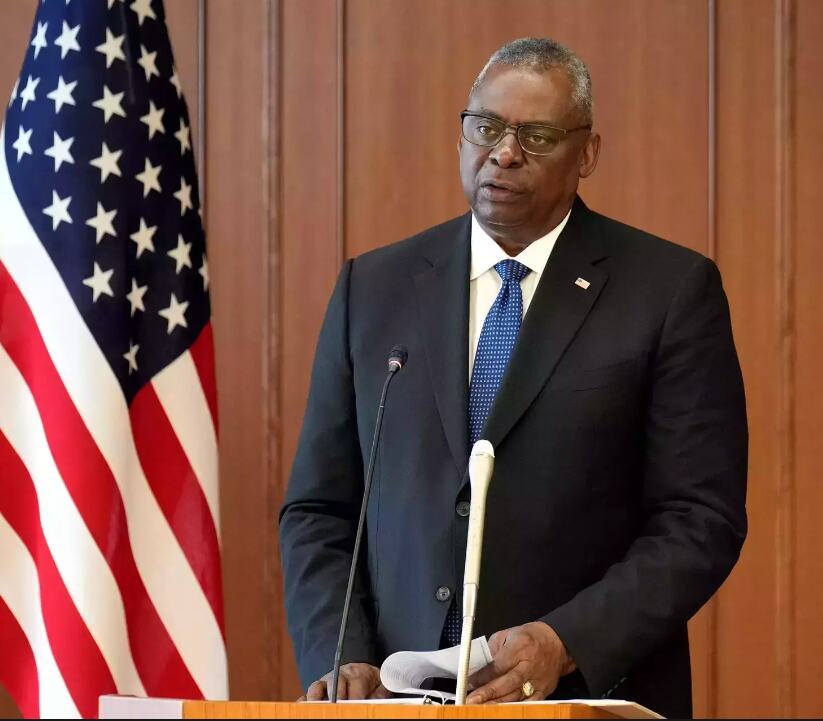US Defense Secretary Stands Firm Against China's Bullying as Talks with Australia Begin
US Defense Secretary Lloyd Austin emphasizes US support for countries opposing China's bullying behavior during bilateral talks in Australia, focusing on countering China's growing influence in the Asia-Pacific region. The discussions address the trilateral defense deal, China's coercion, and strengthening cooperation in the Indo-Pacific region.
The United States is standing with countries in opposition to China's "bullying behavior," according to US Defense Secretary Lloyd Austin. Austin made the statement as he initiated bilateral talks in Australia, focused on countering Beijing's growing influence in the Asia-Pacific region.
Chinese policy in the area will be a key topic during the discussions, as the US and Australian defense and foreign affairs ministers gather for their annual meetings. Austin emphasized the troubling coercion exhibited by China in various regions, including the East China Sea, the South China Sea, and the Southwest Pacific.
He expressed the US commitment to supporting its allies and partners in defending themselves against such behavior. The strained relations between the US and China have been influenced by multiple factors, including trade issues, the status of Taiwan, China's expansive claims in the South China Sea, and the US effort to counter Chinese influence in the Asia-Pacific region.
In recent weeks, senior US officials, including Secretary of State Antony Blinken and Treasury Secretary Janet Yellen, have traveled to China in an attempt to improve communication and prevent a confrontation. However, the removal of Chinese Foreign Minister Qin Gang could complicate these efforts, though analysts suggest it is unlikely to result in a significant change.
China has voiced opposition to the trilateral defense deal between Australia, the US, and the United Kingdom, known as AUKUS. Under this agreement, Australia is set to acquire three US nuclear-powered submarines in the early 2030s.
Chinese foreign ministry spokesperson Zhao Lijian condemned the alliance as an "extremely irresponsible threat to regional stability." He argued that the deal would damage regional peace and stability, intensify an arms race, and undermine non-proliferation efforts. Australia is responding to China's military buildup by reshaping its defense force and plans to enhance its long-range strike capability, domestic missile production, and interoperability with the US and other regional militaries.
The talks between the US and Australia will include discussions on deepening defense ties and integrating Japan into joint force posture initiatives. While Australia's Prime Minister, Anthony Albanese, expressed confidence in the AUKUS plan, a group of 25 Republican legislators in the US raised concerns about the deal.
In a letter to President Joe Biden, they argued that the agreement would weaken the US fleet without a clear replacement plan for the three submarines Biden plans to send to Australia. Overall, Austin's visit to Australia reaffirms the US commitment to supporting its allies in the face of China's aggressive behavior.
The discussions between the US and Australia will not only address the defense deal and China's coercion in the Asia-Pacific region but also aim to strengthen cooperation with other countries in the Indo-Pacific region. The talks emphasize the importance of a free and open Indo-Pacific, where all nations can prosper and disputes are resolved peacefully, in line with international law and norms.




